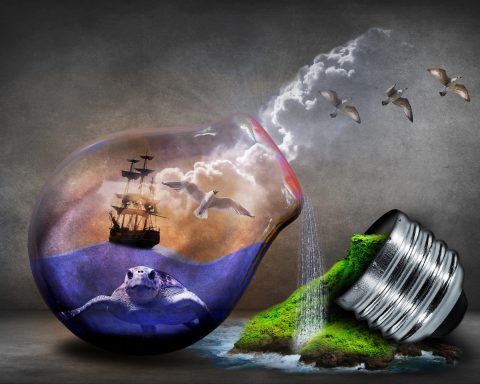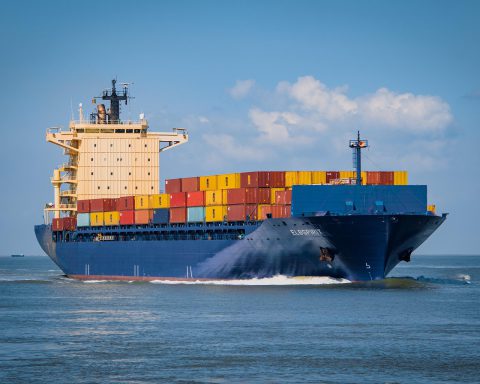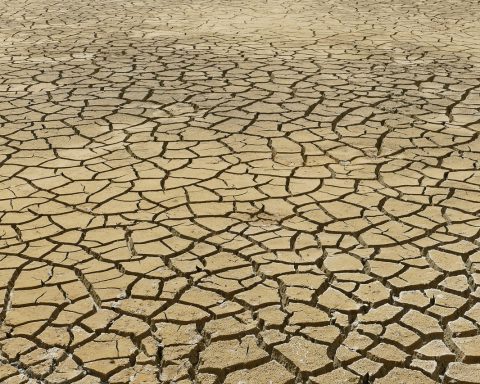The United Nations (UN) considers plastic waste as the biggest problem of the 21st century. It is everywhere and often ends up where it should not be. The plastic problem is directly related to consumption and disposal, and therefore to all of us.
Grocery bags at the beach and plastic packaging in green spaces are only symptoms of the main problem. The UN estimates that every year, a million tons of plastic waste reaches the worlds oceans. There are diverse ways that lead there, but when we take a look at the big picture, it becomes easier to understand why this happens.
According to the UN, since the 1950s, the production of plastic has outpaced that of almost every other material, and only 9% of the plastic the world has ever produced has been recycled. As a result, most of this waste sits in dumps, landfills or in the environment.
According to the Ellen MacArthur Foundation, in 30 years our oceans will contain more plastic than fish.

This seems an inconceivable statistic, but it becomes clearer when accompanied by some numbers: According to Greenpeace, the United States alone discards more than 500 million plastic straws a day. Official numbers indicate that in Brazil, a million and a half plastic bags are distributed per hour, and marine litter already harms over 600 marine species around the world.
(Spoiler: We are also eating plastic when we eat those animals that have eaten micro-plastic.)
There are many plastic islands on the oceans, the biggest being on the Pacific, and they are not small. Ships have to alter their routes to avoid them. This list could go on and on…
Although the future looks grim, the plastic problem is not only one for the future – it’s for right now. The consequences of all this garbage are already wide-ranging and real.
So, if the predictions are so bad, why aren’t more people taking an active role in the fight against the plastic problem?
Plastic waste is an old environmental issue which demands (and now receives) more attention. But although it fosters discussions, policies, economic measures, and voluntary agreements in different governmental spheres, it is still ignored by many citizens.
Some people don’t understand the relevance of plastic straw regulations, for instance. It sounds like a minor thing to be worried about, because they don’t realize that this is just the tip of the iceberg.
There is also a group of people which is really worried, which is furious, because the government should have more political responsibility and prioritize environmental issues. However, this same group keeps using plastic as they always have.
This is the paradox. The data about plastic in the oceans are so scary that many people find their own way to passively deal with it. They question the numbers, they think their individual contribution is insignificant, they feel impotent or find it hard to change their habits.
Just being worried about something is not effective in fighting against it.
Awareness alone means the alarming numbers of plastic waste keep growing. It is necessary to do something, to take the next step. The cycle of “being aware, being worried, doing nothing” is not exclusive to plastic waste, but common to environmental problems in general. People do feel bad about the destruction of the Amazon rainforest, but they are so far away that they believe they can do nothing about it, and therefore they do not engage.
The logic is the same with regard to global warming, to endangered species, air pollution, desertification, etc. Even when you want to do something, it feels very hard and far removed from your own reality.
Studies about engagement in sustainability themes point in this direction. It is hard to fight for something you don’t see in your reality: You don’t directly feel the impacts, you don’t see the consequences. It feels so much bigger than you.
You may have no control over or contact with a rainforest or an endangered species, but you do have control of your own garbage.
In fact, reducing the amount of plastic you use and contributing to public pressure on governments can have a significant impact on our planet.
Garbage is very connected to consumption. You generate plastic waste if you choose to buy plastic straws or anything that comes wrapped in plastic. You will pour lots of plastic into the oceans if you keep buying shower gels that contain micro-plastic.
You cause a bigger negative impact when you choose to use disposable cups, buy plastic bottles and fail to separate your garbage for recycling. The solution to breaking free from plastic waste is at your fingertips.

Regulations are being introduced everywhere to reduce or ban plastic bags, products with micro-plastic, plastic straws and other types of plastic. Africa, for example, is the continent where the largest number of countries (25) instituted a total ban on plastic bags. The fashion industry is producing a variety of products from plastic waste, such as sneakers and clothes. NGOs and volunteers are cleaning up the oceans, governments are creating new rules to reduce or ban the use of plastic. The citizens must assume their responsibility as well.
Read the labels. Is the packaging material recyclable or recycled? Is there a green label or any other kind of certification that lets you know what you are financing by purchasing products from this company?
Plastic is a worldwide environmental problem and fighting against it does not require much effort, but it does require action. All you need to do is to exercise conscious consumption and pay attention to your garbage.
Part III of series: “A fresh gaze”
This series is an invitation to take a fresh look at topics we already know. This might mean we’ll leave beliefs behind, stop romanticizing some concepts, or just keep up with new data. One way or another, the idea is to exercise approaches that can allow us to make better choices.
Manoella Oliveira is a Brazilian journalist who holds a Master’s degree in Media and Communication Science, with a post-grad in Environmental Management.









